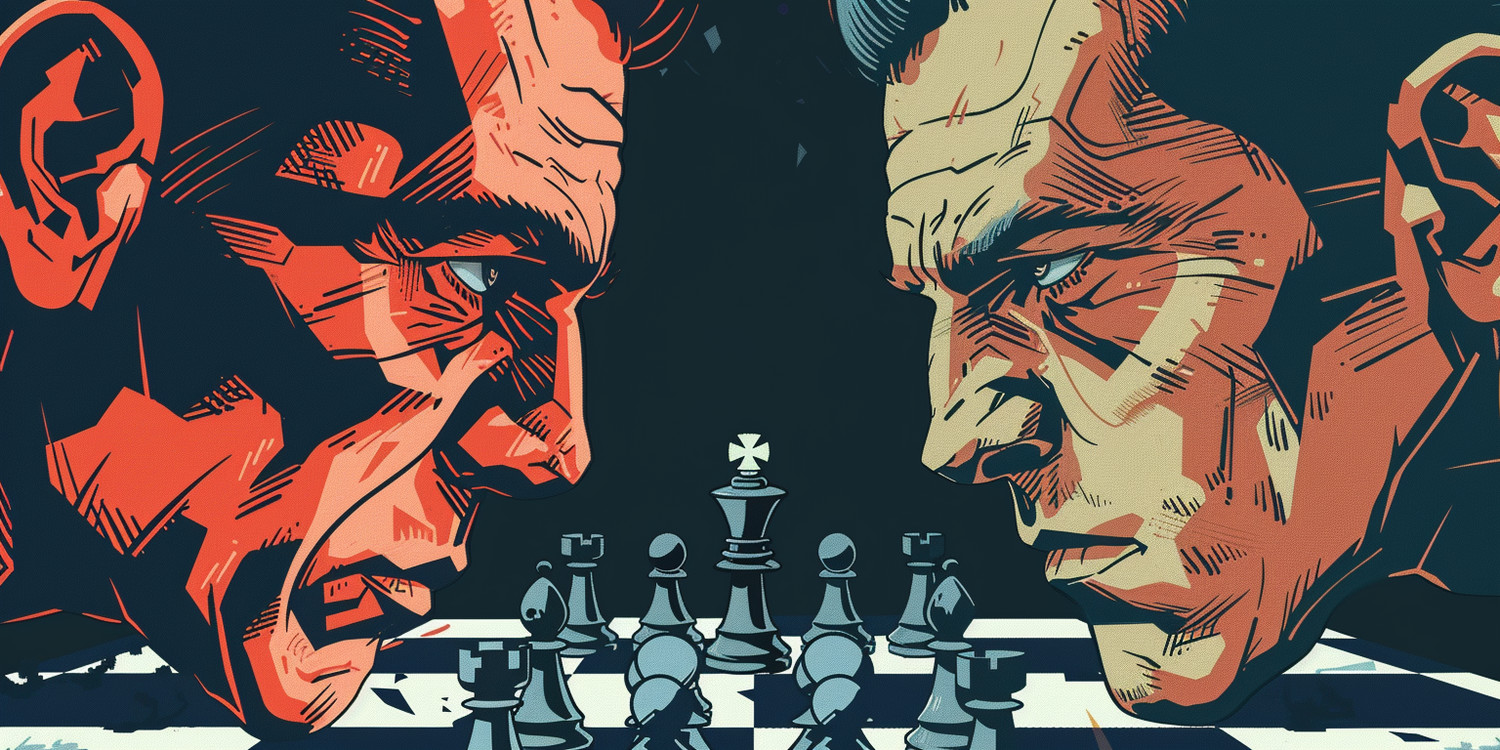
The game transcends mere tactical calculation, evolving into a profound psychological contest. Players engage in a silent, mental dialogue, assessing their opponent’s disposition and intentions.
Fundamentals of Chess Psychology
Chess psychology encompasses cognitive and emotional factors crucial for success. Mastery necessitates understanding pattern recognition, memory, and calculation. Players must regulate emotions, manage stress, and maintain focus. Decision-making is influenced by psychological biases and tendencies. Recognizing recurring strategies enhances anticipation skills. Understanding one’s own psychological state and that of the opponent provides a strategic advantage. The ability to control emotions and maintain composure under pressure is paramount. A player’s psychological profile can be built by analyzing past games and identifying tendencies. Studying chess openings and their psychological implications enables early dominance. Psychological preparation before the game is essential to setting the stage. This includes managing anxiety, cultivating confidence, and developing a clear mental plan. Recognizing the social aspect of chess, where unspoken communication and mental interplay occur, is vital. It is also beneficial to develop adaptability and the ability to anticipate an opponent’s plans in unpredictable situations. Understanding your opponent’s tendencies and psychological state can provide a critical edge.
Cognitive Processes in Chess: Memory, Pattern Recognition, and Calculation
Chess mastery is deeply intertwined with cognitive functions, primarily memory, pattern recognition, and calculation. Memory serves as a repository of past games, openings, and tactical motifs, enabling rapid recall of relevant information. Pattern recognition allows players to identify recurring strategic and tactical structures, facilitating quicker assessment of board positions. Calculation involves mentally simulating possible move sequences to evaluate their consequences, demanding intense focus and foresight. Proficiency in these cognitive domains enables a player to efficiently process complex information and make informed decisions. Memory enables players to access a vast library of chess knowledge, including opening theory, endgame principles, and tactical patterns. Pattern recognition is crucial for quickly identifying familiar positions, allowing players to leverage their stored knowledge. Calculation is the ability to mentally simulate move sequences and anticipate their consequences, requiring focus and concentration. These processes are not independent; they interact synergistically to enhance chess performance. A strong memory provides the foundation for pattern recognition, which in turn informs the calculation process. Enhancing these cognitive skills through deliberate practice and study is crucial for chess improvement.
Emotional Regulation: Managing Stress and Pressure During a Game
Maintaining emotional equilibrium is paramount amidst the inherent stress and pressure. Effective regulation enhances focus, enabling sound strategic decision-making and mitigating impulsive errors.
Reading Your Opponent
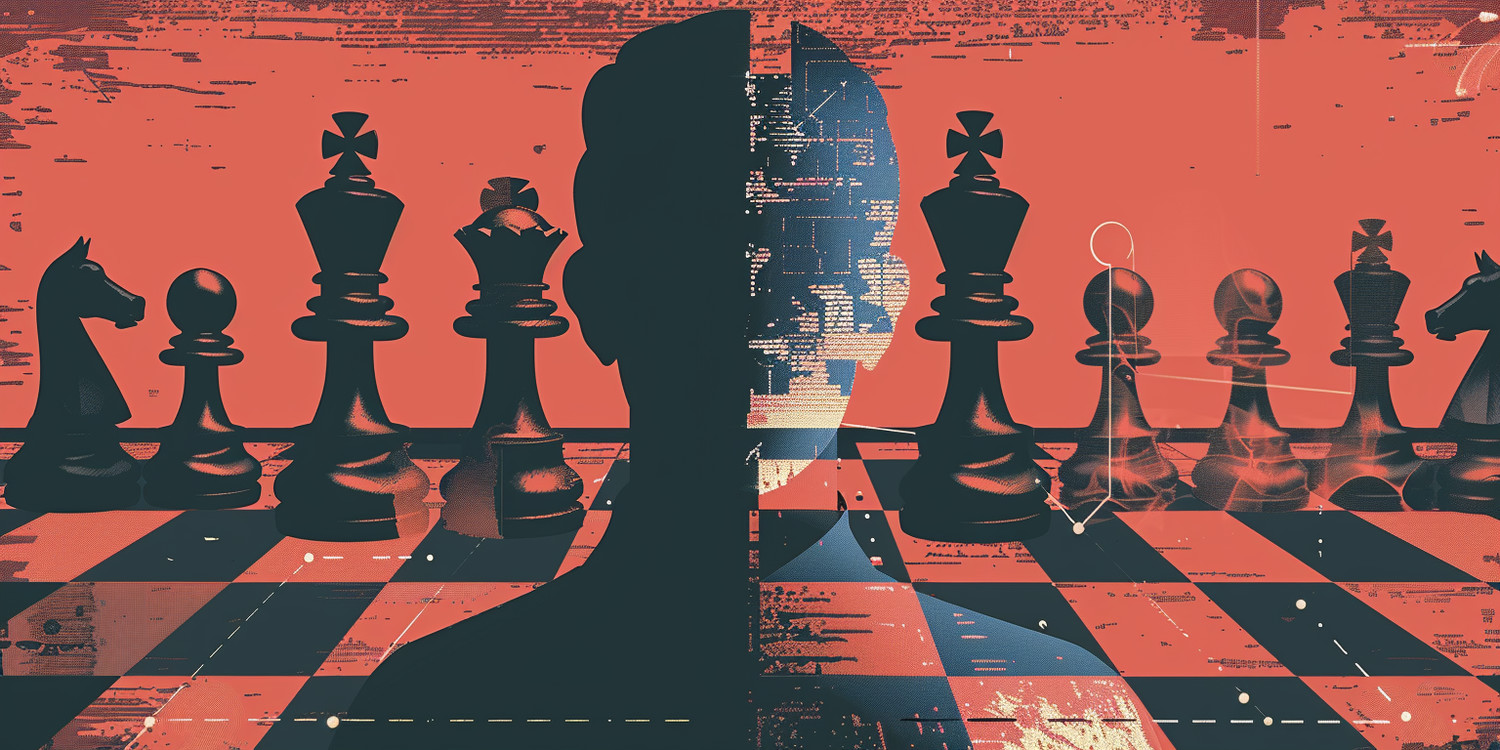
A critical aspect of chess psychology involves adeptly interpreting an opponent’s behavior to glean insights into their thought processes and potential plans. This encompasses both observational cues and analysis of playing style. Observational cues include body language, hesitation, facial expressions, and other non-verbal signals that may betray their confidence, uncertainty, or intentions. Analyzing playing style entails identifying tendencies, preferences for certain types of positions, and patterns in their decision-making. Aggressive players may overextend, while cautious players avoid complications. Understanding an opponent’s typical responses to specific situations can provide a strategic advantage. Skilled players recognize subtle cues, interpreting them to anticipate their opponent’s moves. This ability to read an opponent is one of the most important skills in chess psychology. Every move tells a story, and experienced players learn to read those subtle cues. Recognizing patterns in their thought processes and reactions is a key aspect of gaining a psychological edge. The social aspect of chess, a silent conversation between players, is a dance of minds. Understanding the opponent is a crucial, often overlooked aspect of a successful chess strategy.
Observational Cues: Body Language, Hesitation, and Facial Expressions
Observational cues provide valuable insights into an opponent’s mental state during a chess game. Body language, hesitation, and facial expressions can reveal a player’s confidence, uncertainty, or even deception. A confident player might exhibit a relaxed posture and make decisive moves, while an uncertain player may fidget, hesitate before moving, or display signs of discomfort. Facial expressions, such as furrowed brows or a slight smile, can betray a player’s level of concentration or satisfaction with a position. However, it is crucial to interpret these cues cautiously, as some players may deliberately mislead their opponents. The ability to accurately read these cues requires careful observation and an understanding of individual behavior patterns. Experienced players develop a keen sense for detecting subtle changes in an opponent’s demeanor, using this information to anticipate their moves and exploit their weaknesses. Paying attention to how quickly or slowly a player moves a piece can also offer insights. Hesitation often indicates doubt or uncertainty, while rapid moves may suggest confidence or impulsiveness. Recognizing these patterns can provide a significant psychological advantage.
Analyzing Playing Style: Identifying Tendencies and Preferences
Discerning an opponent’s proclivities is pivotal. Recognizing predilections for tactical complexities or positional stability facilitates anticipating strategies, enabling tailored counter-strategies that exploit inherent biases and inclinations.
Exploiting Psychological Weaknesses
A key element of chess psychology lies in identifying and exploiting an opponent’s psychological vulnerabilities. This involves inducing errors by provoking overconfidence or panic, and utilizing time management as a psychological tool. Overconfidence can be exploited by setting traps or creating positions where the opponent underestimates the risks. Panic can be induced by creating complex, unclear situations that force the opponent to make hasty decisions. Time management becomes a potent psychological weapon, especially in time scrambles, where applying pressure can lead to mistakes. Recognizing an opponent’s emotional state and adjusting strategy accordingly is crucial. If an opponent is easily frustrated, creating a defensive position can provoke errors. Understanding their risk tolerance allows for calculated gambles that may unsettle them. The goal is to disrupt their mental equilibrium and create opportunities for tactical advantages. The ability to remain calm and composed while exploiting these weaknesses is essential for success. This requires a high level of self-awareness and emotional control. By carefully observing and analyzing an opponent’s behavior, players can identify and capitalize on their psychological vulnerabilities.
Provoking Errors: Inducing Overconfidence or Panic
Inducing errors in an opponent often hinges on manipulating their psychological state, specifically by provoking overconfidence or panic. Overconfidence can be subtly encouraged by allowing an opponent to gain a perceived advantage, only to reveal a hidden trap or counter-attack later. This strategy preys on their inflated sense of security, leading to miscalculations and blunders. Conversely, panic can be induced by creating complex, unclear, or rapidly changing situations that force the opponent into hasty decision-making. Introducing unexpected sacrifices or complications can disrupt their thought processes, leading to errors of judgment. The key is to carefully assess the opponent’s temperament and tolerance for risk, tailoring the approach accordingly. Players who are naturally aggressive may be more susceptible to overconfidence, while those who are cautious may be more easily panicked. Successfully provoking errors requires a keen understanding of human psychology and the ability to anticipate an opponent’s reactions under pressure. This involves a delicate balance, as overly aggressive tactics can backfire if the opponent remains composed. The aim is to create an environment where the opponent’s psychological state becomes a liability, leading to critical mistakes.
Time Management as a Psychological Tool: Applying Pressure in Time Scramble
Judicious time allocation exerts psychological influence. In time scrambles, rapid play amplifies pressure, inducing hasty decisions. Skillful time management becomes a weapon, exploiting the opponent’s anxiety and propensity for errors.
Strategic Psychological Maneuvers
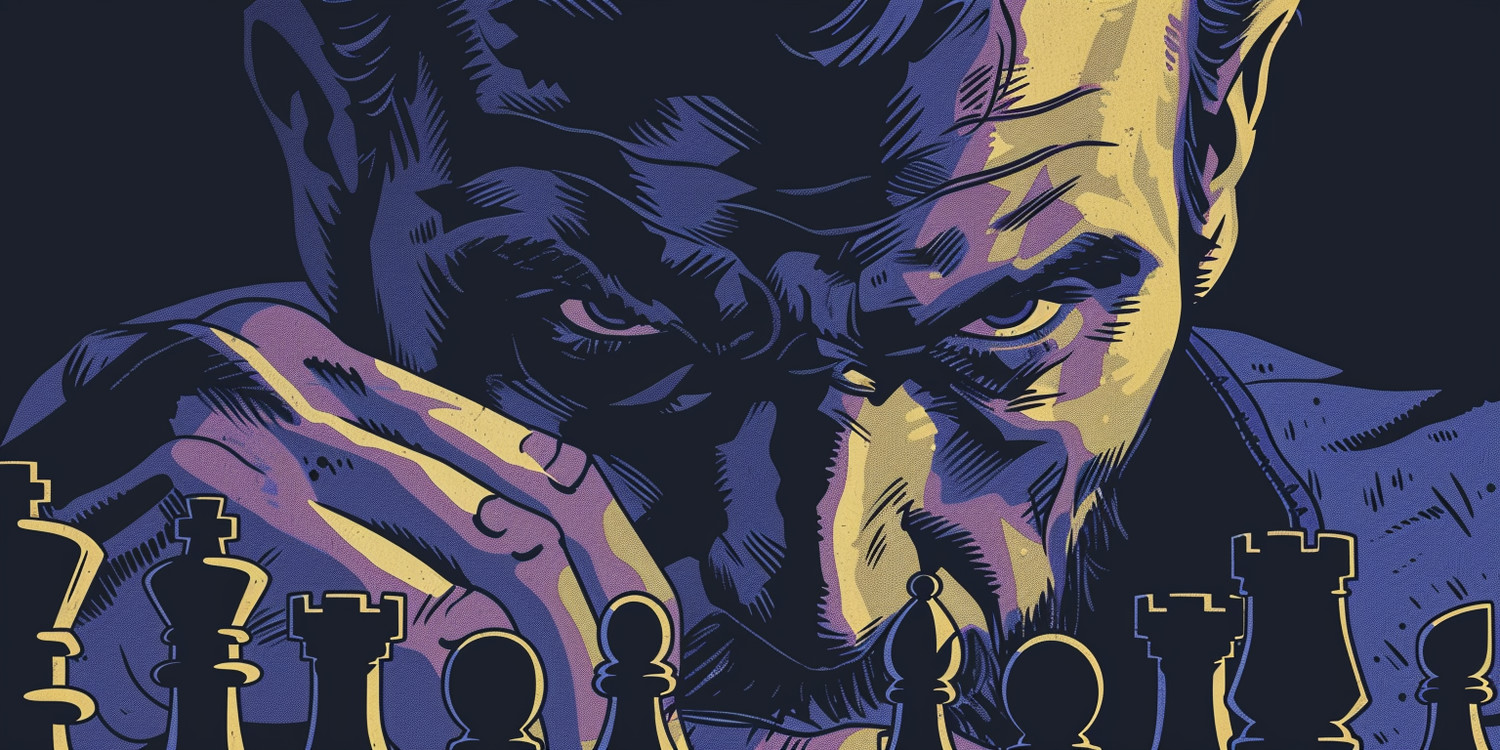
Strategic psychological maneuvers in chess involve employing techniques to influence an opponent’s thoughts, emotions, and decision-making. This includes the art of deception, misleading an opponent with bait and traps, and psychological preparation to set the stage before the game begins. Deception can involve sacrificing a piece to create a false sense of security or leading an opponent into a seemingly advantageous position that ultimately leads to their downfall. Psychological preparation involves managing one’s own emotions and mental state, as well as attempting to assess and influence the opponent’s. This might involve projecting confidence, creating an atmosphere of intimidation, or attempting to lull the opponent into a false sense of complacency. The key is to subtly influence the opponent’s perception of the game and their own abilities. Understanding an opponent’s personality and playing style is crucial for tailoring these maneuvers effectively. Some players are more susceptible to deception, while others are more easily intimidated. The goal is to create a psychological environment that favors one’s own strengths and exploits the opponent’s weaknesses. Mastering these strategic maneuvers requires a combination of chess skill, psychological insight, and theatrical flair.
The Art of Deception: Misleading Your Opponent with Bait and Traps
Deception in chess involves strategically misleading an opponent through bait and traps, creating illusions of advantage that ultimately lead to their downfall. This requires a deep understanding of chess principles, psychological manipulation, and theatrical flair. Bait can take various forms, such as offering a pawn or piece to lure the opponent into a disadvantageous position. Traps are carefully constructed scenarios where a seemingly attractive move leads to immediate or eventual loss. The effectiveness of deception relies on the opponent’s overconfidence, greed, or miscalculation. Skilled players can create subtle traps that are difficult to detect, even for experienced opponents. The art of deception also involves concealing one’s true intentions, making moves that appear to serve one purpose while actually setting up a more elaborate plan. This can involve sacrificing a piece to open up lines of attack or creating a seemingly weak pawn structure to lure the opponent into an overextended position. Successfully deceiving an opponent requires a combination of chess knowledge, psychological insight, and a willingness to take calculated risks. The goal is to create a situation where the opponent’s own desires and assumptions lead to their defeat.
Psychological Preparation: Setting the Stage Before the Game Begins
Pre-game preparation establishes a mental framework for optimal performance. Managing anxiety, cultivating unwavering confidence, and devising a coherent mental plan are crucial steps in forging a resilient psychological foundation.
The Role of Experience and Learning
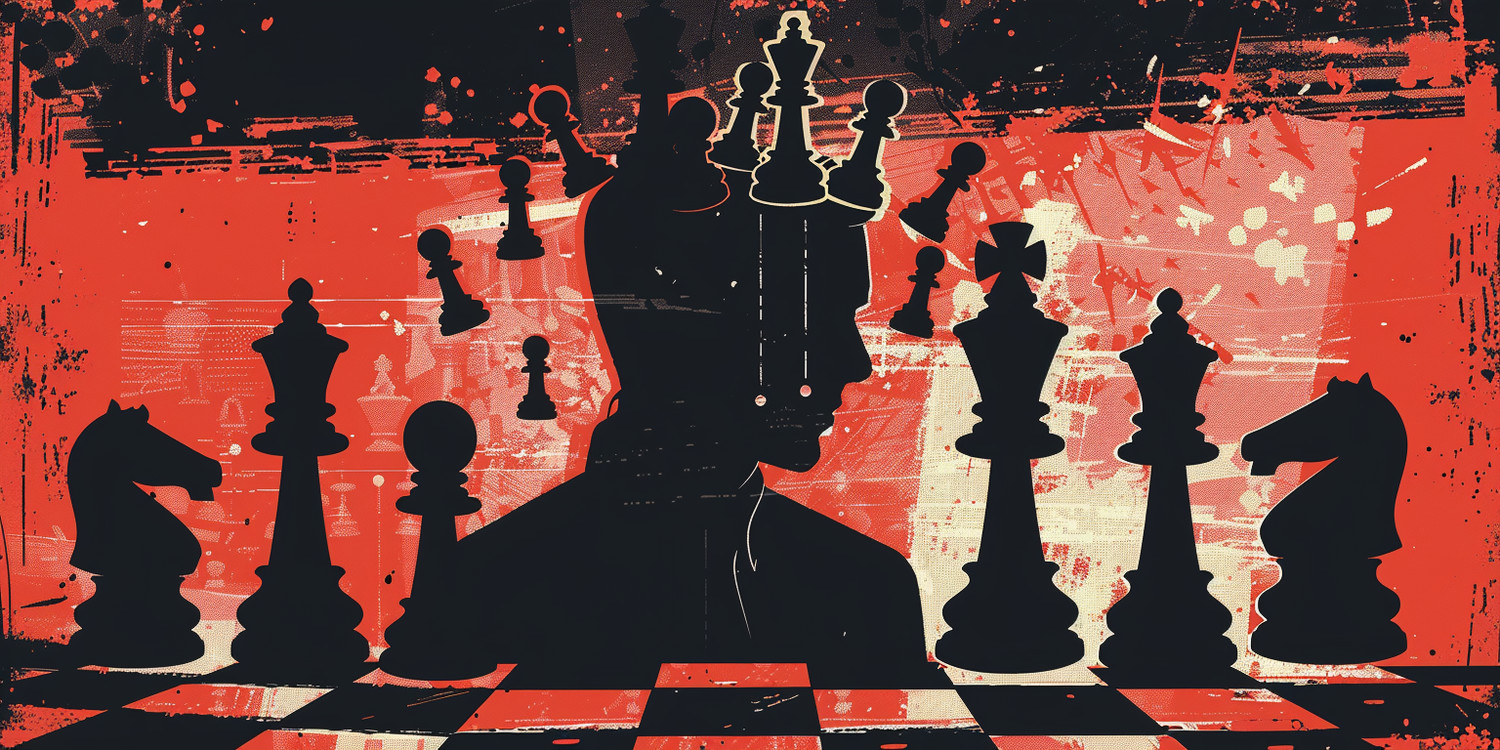
Experience and continuous learning are fundamental to mastering chess psychology. Analyzing past games, both one’s own and those of opponents, is essential for understanding behavior patterns and adjusting strategies. Building a psychological profile of opponents, creating a database of their tendencies, allows for anticipating their moves and exploiting their weaknesses. Experience provides a wealth of knowledge about different playing styles, common psychological traps, and effective strategies for managing pressure. Learning involves studying chess theory, analyzing grandmaster games, and seeking feedback from coaches or stronger players. The combination of experience and learning allows players to develop a deeper understanding of both the game and the human mind. By analyzing past games, players can identify their own psychological vulnerabilities and develop strategies for overcoming them. Building a psychological profile of opponents allows for tailoring one’s approach to exploit their specific weaknesses. The ability to learn from experience and adapt one’s strategies is a key characteristic of successful chess players. This continuous cycle of learning and adaptation is crucial for long-term improvement and success in the game.
Learning from Past Games: Analyzing Opponent Behavior and Adjusting Strategies
Analyzing past games is a crucial component of chess improvement, particularly in understanding opponent behavior and adjusting strategies accordingly. By meticulously reviewing games, players can identify patterns in their opponent’s decision-making, tendencies in their opening choices, and proclivities for certain types of positions. This analysis should focus not only on the technical aspects of the game but also on the psychological factors that may have influenced the opponent’s choices. Did they become more aggressive when under pressure? Did they tend to avoid complications or seek tactical opportunities? Understanding these psychological tendencies allows players to anticipate their opponent’s moves in future games and develop strategies to exploit their weaknesses. Furthermore, analyzing one’s own games is essential for identifying personal psychological vulnerabilities and developing strategies for managing them. Did you become overly anxious in a time scramble? Did you tend to underestimate your opponent’s abilities? By understanding these tendencies, players can develop mental techniques to remain calm and focused under pressure. This iterative process of analyzing past games, identifying behavioral patterns, and adjusting strategies is crucial for continuous improvement in chess psychology.
Building a Psychological Profile: Creating a Database of Opponent Tendencies
Compiling a comprehensive record of an opponent’s predilections enhances predictive accuracy. Cataloging opening choices, tactical inclinations, and responses to pressure facilitates strategic adaptation, maximizing psychological advantages.
Specific Scenarios and Psychological Tactics
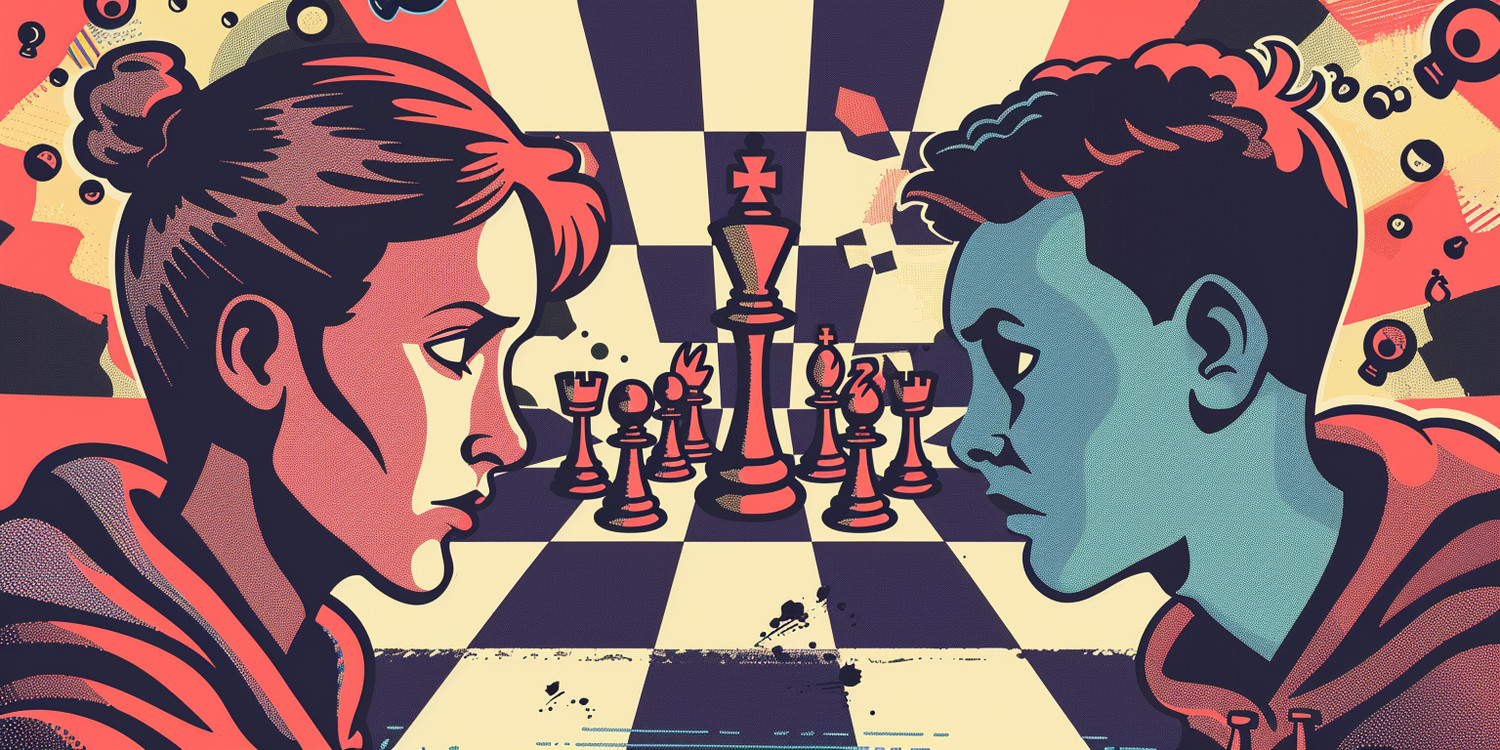
Certain chess scenarios present unique psychological challenges and opportunities. The opening moves establish an early psychological tone, the middlegame demands sustained focus and momentum, and the endgame tests resilience and capitalizes on fatigue. In the opening, aggressive choices can signal dominance, while solid play conveys stability. Maintaining focus in the middlegame requires managing emotions and adapting to evolving circumstances. The endgame, often characterized by fatigue and time pressure, offers chances to exploit errors. Psychological tactics include provoking impatience, creating uncertainty, or feigning weakness to lure opponents into traps. Adapting one’s approach to the specific phase of the game is crucial. The opening sets the tone, the middlegame tests resolve, and the endgame rewards precision. Understanding these nuances and applying appropriate psychological tactics can significantly impact the outcome. Successfully navigating these scenarios requires a combination of chess skill, psychological awareness, and adaptability. Each phase presents distinct challenges and opportunities for psychological manipulation. Recognizing these nuances and adjusting one’s approach accordingly is essential for success.
The Psychology of Opening Moves: Establishing Early Psychological Dominance
The opening phase of a chess game presents a crucial opportunity to establish early psychological dominance. The choice of opening can convey a specific message, signaling aggression, caution, or a desire for a complex game. An aggressive opening can unsettle an opponent, forcing them to react defensively. A solid, positional opening can project stability and confidence. The speed and decisiveness with which the opening moves are played can also influence the opponent’s perception. Rapid, confident play can create a sense of pressure, while slow, deliberate moves can convey careful consideration. However, it is important to avoid telegraphing one’s intentions or revealing any weaknesses. The opening should be played with a clear plan in mind, but also with flexibility to adapt to the opponent’s responses. The goal is to create a psychological environment that favors one’s own strengths and exploits the opponent’s weaknesses. This requires a keen understanding of chess theory, psychological manipulation, and the ability to project confidence and control. By establishing early psychological dominance, players can gain a significant advantage that carries throughout the game. The opening is not merely about developing pieces; it is about setting the tone for the entire battle.
Psychological Considerations in the Middlegame: Maintaining Focus and Momentum
The middlegame in chess demands sustained focus and unwavering momentum, presenting unique psychological challenges. Maintaining concentration amidst complex tactical and strategic considerations is paramount. Avoiding distractions, managing emotions, and resisting the urge to deviate from the overall game plan are essential for preserving focus. Momentum, the feeling of control and initiative, can significantly influence the opponent’s psychological state. Maintaining momentum involves creating threats, controlling key squares, and dictating the pace of the game. However, it is crucial to avoid overextending or becoming complacent. The middlegame is a dynamic phase, requiring constant adaptation and reassessment. Recognizing shifts in momentum and adjusting strategy accordingly is crucial for maintaining psychological control. The ability to remain calm and composed under pressure, to make sound decisions despite fatigue or stress, is a key characteristic of successful middlegame play. This requires a high level of self-awareness and emotional regulation. By maintaining focus and momentum, players can create a psychological advantage that leads to victory. The middlegame is a test of both chess skill and mental fortitude.
Endgame Psychology: Capitalizing on Opponent Fatigue and Errors
Endgames test mental fortitude. Opponent fatigue and oversight become exploitable vulnerabilities. Precise, relentless pressure amplifies the psychological strain, converting subtle advantages into decisive victories through capitalizing on weakened resolve.
Ethical Considerations
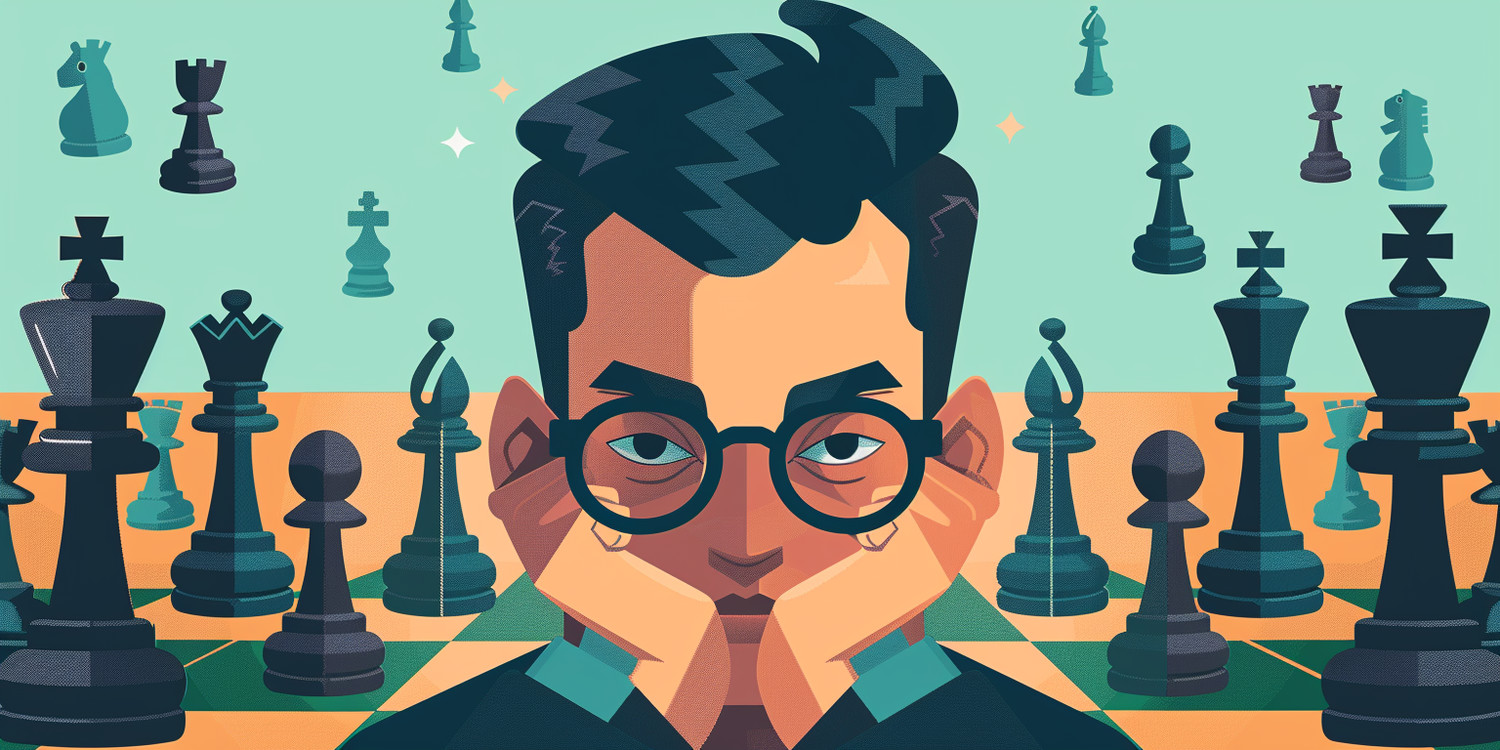
While psychological tactics are integral to chess, ethical considerations remain paramount. Maintaining fair play and sportsmanship is essential, ensuring that psychological warfare does not cross the line into unethical behavior. Deception should be limited to strategic maneuvers within the game itself, avoiding personal attacks or attempts to undermine an opponent’s confidence through unsportsmanlike conduct. Respect for the opponent, regardless of their skill level or playing style, is a fundamental principle. Creating a positive and respectful environment fosters a more enjoyable and enriching chess experience for all participants. While psychological pressure is a legitimate tactic, it should be applied within the bounds of ethical behavior. Avoiding distractions, taunting, or other forms of harassment is crucial for maintaining a fair and sportsmanlike environment. The goal is to challenge the opponent’s chess skills, not their personal character. Upholding ethical standards in chess reflects a commitment to integrity and respect, enhancing the overall value of the game. Fair play and sportsmanship are essential for fostering a positive and rewarding chess experience for all participants.
Fair Play and Sportsmanship: Maintaining Ethical Standards in Psychological Warfare
Psychological strategies must align with ethical norms. Fair play dictates avoiding personal attacks, ensuring respect. Sportsmanship mandates grace in victory or defeat, upholding integrity amidst the mental duress inherent within competitive chess.
The Mind as the Ultimate Chess Weapon
In the intricate realm of chess, the mind emerges as the ultimate weapon. Beyond tactical calculations and strategic maneuvers, the psychological dimension profoundly shapes the game’s trajectory. Understanding an opponent’s tendencies, exploiting their weaknesses, and maintaining emotional equilibrium are crucial for success. Chess is not merely a battle of pieces; it is a contest of wills, a silent conversation between minds. Mastering the psychological aspects of the game requires continuous learning, self-awareness, and a commitment to ethical conduct. By honing their mental skills, players can elevate their game beyond technical proficiency, transforming themselves into formidable opponents. The ability to read an opponent, anticipate their moves, and manage one’s own emotions is a powerful asset. Chess rewards not only strategic brilliance but also psychological resilience. The mind, with its capacity for deception, adaptation, and unwavering focus, is the ultimate chess weapon. By cultivating these mental attributes, players can unlock their full potential and achieve mastery of the game. The psychological battleground is where victories are forged, and the mind is the key to unlocking those victories.

